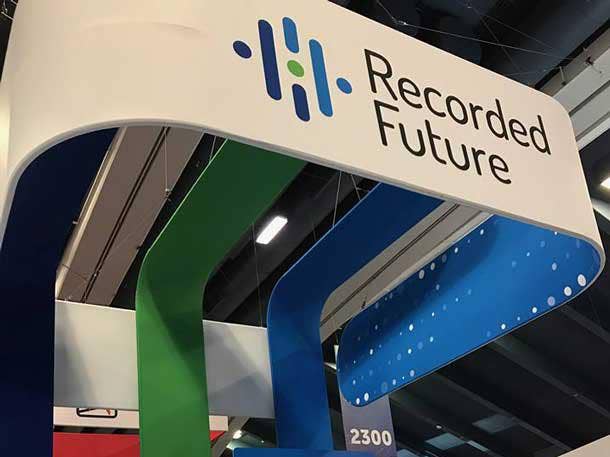5 Things To Watch From Recorded Future After The Private Equity Deal
From hiring more data scientists to doubling down on orchestration and automation, here's how threat intelligence vendor Recorded Future plans to take advantage of the $780 million acquisition by Insight Partners.

Taking Intelligence To The Next Level
Fast-growing threat intelligence vendor Recorded Future moved off the VC track Thursday after being sold to private equity firm Insight Partners for $780 million.
The deal took Insight from holding a minority stake in Recorded Future to being "by far" the majority owner after buying out other investors and stakeholders, according to Stu Solomon, chief strategy and corporate development officer of the Somerville, Mass.-based company.
The acquisition will allow Recorded Future to continue pursuing standalone intelligence as well as deepen its technical integrations with other technology vendors to provide more holistic offerings, Solomon said. The company also plans to pursue opportunities in adjacent markets such as security operations, vulnerability management, and third-party risk.
From hiring more data scientists to deepening its footprint in orchestration and automation, here's what Recorded Future plans to do in the wake on the Insight Partners acquisition.
5. Insight Agrees With Company's Leadership, Go-To-Market Strategy
Insight has been a minority investor in Recorded Future since leading the company's $25 million Series E round in October 2017, and having Insight a controlling stake in the threat intelligence vendor was the "logical next step," Solomon said. Specifically, Solomon said that the acquisition by Insight validated Recorded Future's approach and product roadmap.
Being bought by Insight will be "completely non-disruptive" to the path Recorded Future had already set upon since familiarity and agreement exists between both parties on both the leadership approach and how the company goes to market, Solomon said. Recorded Future co-founders Chris Christopher Ahlberg and Staffan Truve will remain in the CEO and CTO roles, respectively, he said.
Recorded Future didn't run a formal process evaluating strategic alternatives prior to the acquisition by Insight, Solomon said.
4. More Data Sources Will Help Recorded Future Deal With Operational Risk
Maintaining ownership independence from other cybersecurity and technology vendors is at the core of Recorded Future's intelligence-led strategy, Solomon said, and protects the vision the company has always had of treating all platforms and workflows equally.
Recorded Future will continue to add more sources of information to address specific use cases, Solomon said, as well as additional data correlations to drive automation and orchestration around security workflows. The company also intends to get into the operational risk side of the business by infusing more risk-related intelligence, he said.
The company works with user platforms that interface with Recorded Future's software, Solomon said, as well as more technical intelligence elements to drive more API functionality.
3. Deeper Integrations With SIEM, Endpoint, Firewall Vendors
Recorded Future wants to be able to provide prioritization, enrichment and correlation through integrations with SIEM, next-generation firewall and endpoint vendors, Solomon said. This would provide the company with a threat-aware method to get into automation, orchestration and vulnerability management, he said.
A successful technical integration around these workflows requires the right focus from a developmental resource and product perspective to make the conveyance of data as effective and sustainable as possible, according to Solomon. Recorded Future today has technical integrations with 70 different partners, primarily in the SIEM, endpoint and next-generation firewall spaces, Solomon said.
Going forward, Solomon said Recorded Future hopes to strengthen its technical integration and workflows by focusing on onward usage and consumption. The company hopes to deepen its relationship by existing partners by adding integration points around more of their products and tools, he said.
2. Capitalize On Opportunities Around Automation, Orchestration
Infusing Recorded Future's threat intelligence inside more products provides the company with broader appeal from a go-to-market standpoint, Solomon said. Integrated threat intelligence within a security ecosystem result in tools that are better correlated, more enriched, and more effective, according to Solomon.
This serves as a terrific pivot point into SOAR (security orchestration, automation and response) components of the workflow, where Solomon said Recorded Future should be able to add validity to a threat scoring engine that allows for orchestration and automation with context. This should complement an organization's existing detection capabilities, Solomon said.
Recorded Future has focused on helping channel partners understand how intelligence can make security products better and more effective than a simple standalone sale, Solomon said.
1. Continued Aggressive Hiring Of Technical Resources
Recorded Future has been focused on growing its technical and go-to-market expertise by hiring people with backgrounds in development or data science, Solomon said. On the channel side of the operation, Solomon said the company has added technical resources with risk and security background to better enable partners.
The company currently employs 408 people, up 74 percent from 234 works a year ago, according to LinkedIn. This headcount growth has matched client growth, which Solomon said has expanded rapidly on a year-over-year basis for several years. Solomon expects the aggressive pace of growth to continue.
Recorded Future has almost doubled in size since Solomon joined the company in November, he said. This growth should make it possible for Recorded Future to focus on adding technical talent to drive further integration, according to Solomon.